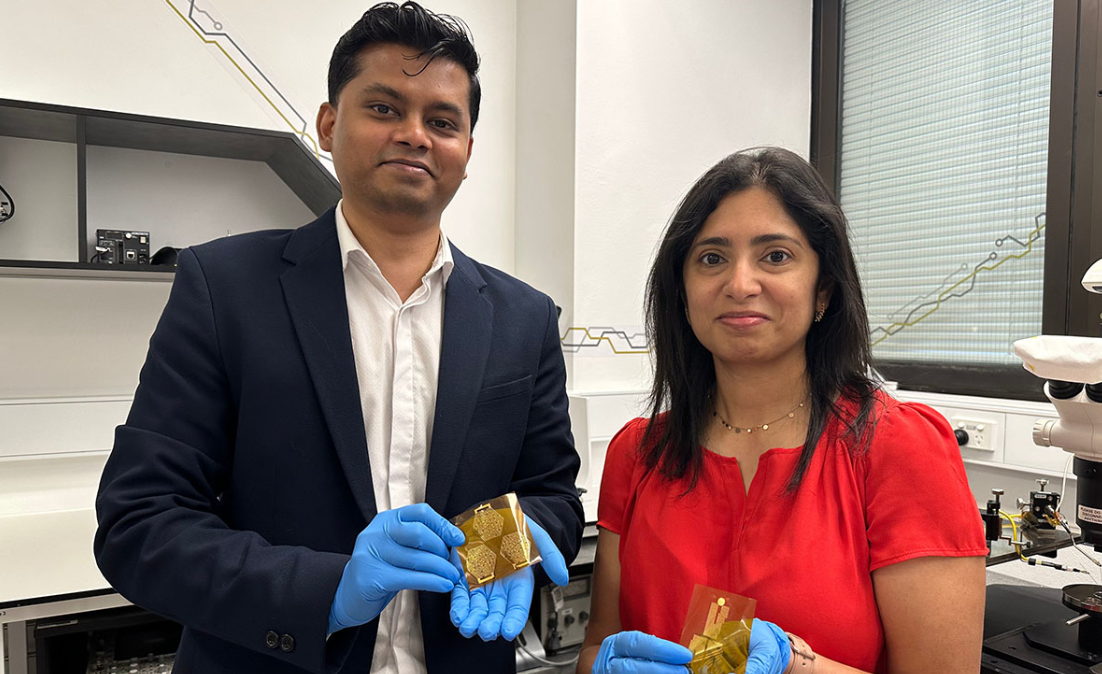New Waterproof ECG Sensor Revolutionizes Heart Health Monitoring
All over the world, cardiovascular problems continue to be one of the leading causes of death. As a result, healthcare workers rely on electrocardiogram (ECG) sensors to monitor the heart health of patients. In a groundbreaking development, researchers from RMIT University in Australia have introduced a special type of waterproof ECG sensor that minimizes skin irritation, making it comfortable to wear for patients.
The team at RMIT University embarked on a mission to enhance ECG sensor technology by improving electrode design and materials. Their objective was to create a sensor that not only delivered superior performance but also elevated the comfort of the user. The result is a remarkably lightweight ECG sensor that weighs only 10 grams, in stark contrast to the standard weight of several hundred grams for conventional devices. However, the real innovation lies in its gel-free design, which significantly reduces the risk of skin irritation commonly associated with wet electrodes.
The gel-free ECG sensor stands out with its dry electrodes, which are minuscule and measure less than one-tenth the width of a human hair. Despite their size, these electrodes exhibit remarkable sensitivity to the user’s cardiac impulses. In comparative tests against a 12-electrode wearable monitor available in the market, this new device impressively recorded heart activity under various conditions, including rest and stress. Furthermore, it can capture ECG readings even when positioned behind the user’s neck, making it a promising tool for applications in elderly care.
Peter Elango, the lead author and PhD scholar, highlighted the advantages of dry electrodes. He explained that these electrodes prioritize user comfort, remain durable over time, and reduce the likelihood of skin irritation. In addition, they are hydrophobic, meaning they don’t get wet, enabling users to wear the device while engaging in water-based activities like swimming and showering. These attributes make this sensor ideal for continuous monitoring, a pivotal feature for wearable ECG devices.
This innovative ECG sensor holds the potential to revolutionize heart health, particularly in remote healthcare and ambulatory care settings. Continuous monitoring becomes critical for early detection and prevention of heart attacks, which often occur suddenly without warning signs. The team’s vision is to avoid heart attacks in patients and provide hope for those prone to cardiovascular diseases.
To bring this groundbreaking work into the commercial market, RMIT University has filed an international patent (PCT) application. The university is actively exploring avenues to transform this technology into a commercial product while engaging in discussions with potential licensing partners. The pioneering development of this revolutionary ECG sensor has been documented in the journal Applied Physics Reviews.
With the introduction of this waterproof ECG sensor, patients can now benefit from a comfortable and reliable monitoring solution that has the potential to save lives and improve overall heart health.

I have over 10 years of experience in the cryptocurrency industry and I have been on the list of the top authors on LinkedIn for the past 5 years. I have a wealth of knowledge to share with my readers, and my goal is to help them navigate the ever-changing world of cryptocurrencies.




